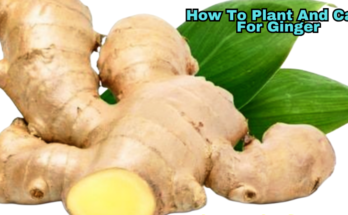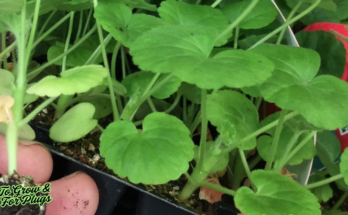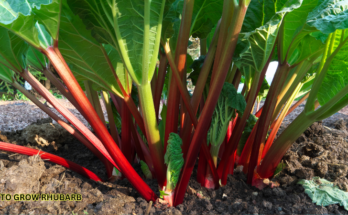Ants are not just unwelcome guests in the kitchen—they can quickly become a problem in the garden, too. While ants play a role in the ecosystem, particularly regarding soil health and pest control, their presence in large numbers can often lead to unintended consequences.
For gardeners, an ant infestation can damage delicate plants, encourage harmful pest populations, and disrupt the overall harmony of the garden space.
Choosing the right type of ant killer is essential for maintaining a healthy garden without harming other beneficial organisms or the environment.
This guide covers various options, from natural remedies to effective chemical solutions, so you can find the best ant killer for your specific garden needs.
What Is The Best Ant Killer For The Garden?
While ants have earned a reputation as pests, they actually provide a few key benefits to the garden. Here’s how they can both help and hurt your plants:
1. Benefits of Ants: Ants aerate the soil as they dig their intricate tunnels, which can help improve water absorption and root health.
Some species of ants also aid in pollination by transferring pollen as they move between flowers. Additionally, ants can be predators of other garden pests, helping to naturally balance the ecosystem.
2. Potential Problems: However, ants can quickly become a nuisance when their population grows unchecked. Many ant species, like the common black ant, “farm” aphids and other sap-sucking insects, protect these pests in exchange for the sugary honeydew they produce.
This process encourages aphid infestations, which can damage plants by weakening them and spreading diseases. Ant colonies can also disturb root systems, and some ants bite or sting, making it uncomfortable to work in the garden.
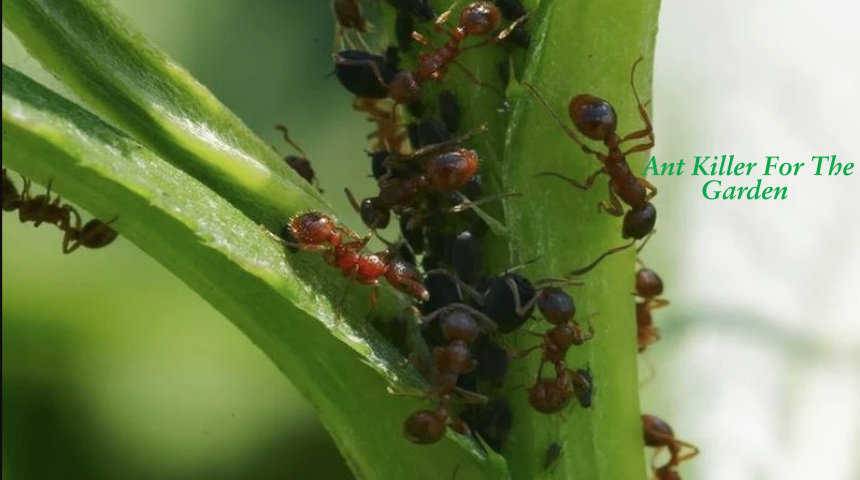
Understanding when ants are helpful and when they become problematic is essential in deciding the best ant control method for your garden.
Types of Ant Killers for Gardens
Choosing the right ant killer depends on your specific goals, preferences, and concerns for garden safety. Both natural and chemical options are effective, but they work differently and come with their own pros and cons.
Natural and Organic Options
Diatomaceous Earth
Diatomaceous earth (DE) is made from the fossilized remains of tiny aquatic organisms called diatoms. The powder has microscopic sharp edges that damage ants’ exoskeletons upon contact, causing them to dehydrate and die.
DE is a non-toxic option that won’t harm plants, pets, or humans, making it ideal for organic gardening.
To use DE effectively, sprinkle it around the base of plants, along ant trails, and near colony entrances. Reapply after rainfall or heavy watering, as moisture reduces its effectiveness.
Vinegar Solution
Vinegar is a household staple that can double as a natural ant repellent. The strong smell disrupts ant trails and makes treated areas unattractive to ants. To make a vinegar solution, mix equal parts white vinegar and water, then spray it along ant trails, entry points, and directly on ants.
While vinegar won’t kill the ants, it can help deter them from entering specific areas. However, vinegar’s effects are temporary, so you may need to reapply every few days or after rain.
Essential Oils
Certain essential oils, such as peppermint, tea tree, and lemon oil, act as natural ant repellents due to their strong scents. These oils interfere with ant pheromone trails, making it harder for ants to find food sources or communicate with each other.
To create an essential oil spray, mix 10–20 drops of essential oil with water in a spray bottle, then apply to the problem areas. This method is especially useful for minor infestations and is safe for plants, pets, and humans.
However, essential oils don’t kill ants, so they may be best suited for preventing ants rather than treating large infestations.
Chemical Ant Killers
Bait Stations
Bait stations contain a food-based attractant mixed with a slow-acting poison. Ants take the bait back to their colony, where it eventually kills the entire population.
Bait stations are a popular choice because they target the colony at its source, making them effective for larger infestations.
Place bait stations strategically in areas where ants are most active but out of reach of pets and children. Keep in mind that bait stations may take a few days to show results as the poison spreads throughout the colony.
Granules and Powders
Ant granules and powders are spread around affected areas, and ants pick up these particles and carry them back to the colony.
These options are long-lasting and provide continuous protection, making them ideal for heavily infested areas. When using granules or powders, carefully follow the application instructions and avoid using them near edible plants, as some chemical formulations may be harmful if ingested.
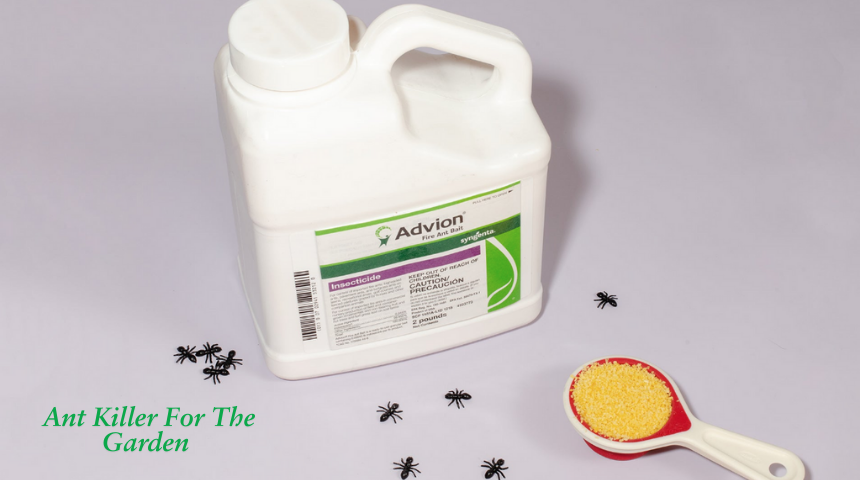
Liquid Ant Killers
Liquid ant killers work similarly to bait stations but act more quickly. These liquids contain a sweet attractant mixed with poison, which ants carry back to the colony.
Liquid ant killers are convenient for spot treatments and provide fast results, although they can be harmful to beneficial insects if applied indiscriminately. Always use them in small, controlled areas, ideally away from plants that attract pollinators.
Safety and Environmental Considerations
Selecting an ant killer for your garden isn’t just about effectiveness—it’s also important to consider the impact on the environment and the safety of pets, children, and other wildlife. Here are some key points to keep in mind:
Avoid Overuse of Chemicals: While chemical ant killers are effective, overusing them can disrupt your garden’s natural balance, harm beneficial insects, and contaminate soil and water sources.
Opt for Targeted Application: To minimize environmental impact, apply ant killers directly where ants are active rather than using broad treatments across the garden.
Keep Pets and Wildlife Safe: Some ant killers are toxic to pets and wildlife. For example, bait stations and certain granules may attract animals, so always use them in pet-free areas or cover them to prevent accidental ingestion.
Whenever possible, start with natural methods, and if chemical treatments are necessary, choose options with the least environmental impact.
Best Practices for Applying Ant Killers
Using ant killers effectively involves more than just choosing the right product. Here are some best practices for application:
Read and Follow Instructions: Whether using natural remedies or chemical products, carefully read the instructions to ensure you’re using the product correctly. Overuse or improper application can reduce effectiveness and increase environmental impact.
Choose Dry Weather for Application: Rain or watering can wash away treatments, especially powders and sprays. Plan to apply ant killers on dry days to give the product time to work.
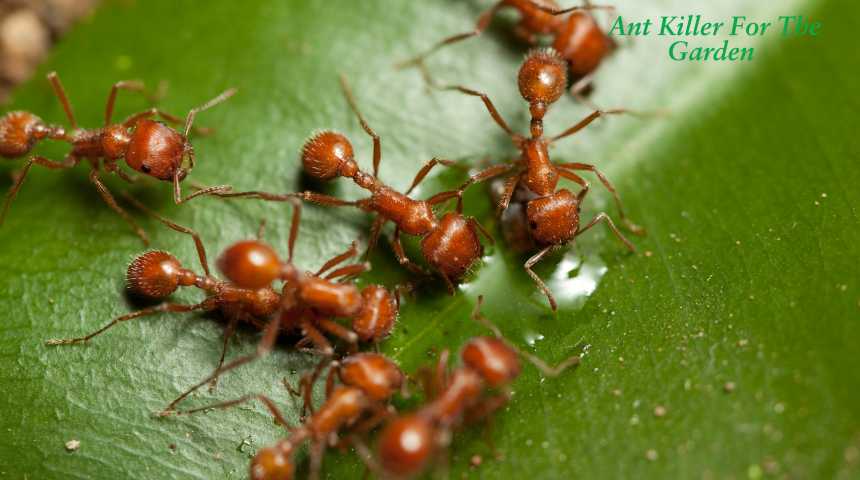
Monitor Ant Activity and Reapply as Needed: Ant control is rarely a one-time effort. Check your garden regularly, and reapply treatments if ants return. Reapply natural treatments as needed, but use caution with chemical solutions to avoid harming the garden’s ecosystem.
Top 5 Recommended Ant Killers for Gardens
Here are five highly recommended options to control ants in gardens:
- Diatomaceous Earth – A safe, non-toxic option that works well for organic gardeners. It provides long-lasting, effective ant control without harming other garden life.
- Vinegar Solution – A cost-effective, easy-to-make repellent that deters ants without harming plants or pets. Its only drawback is the need for frequent reapplication.
- Terro Liquid Ant Bait – A popular and effective chemical solution, Terro bait works well for targeting entire colonies. It’s ideal for more severe infestations.
- Ortho Orthene Fire Ant Killer – A strong chemical option for controlling larger colonies, particularly fire ants. This powder should be used carefully, as it can be harmful to pets and beneficial insects.
- Essential Oils (Peppermint or Tea Tree) – These oils work as safe, natural repellents that prevent ants from entering specific areas. They are best for minor infestations or as preventative measures.
FAQ
Are ants harmful to all plants?
No, ants are not universally harmful. While they help with soil aeration and pest control, they can encourage aphid populations, which damage plants.
Can I use household products to kill ants?
Yes, vinegar, essential oils, and dish soap solutions can act as natural repellents. However, they may not be strong enough for serious infestations.
How often should I apply ant killer in the garden?
Natural options may need weekly applications, while chemical solutions generally last several weeks before reapplication is needed.
What’s the safest way to apply ant killer?
Always follow the label instructions, wear gloves, and apply treatments in targeted areas to reduce risks to pets and wildlife.
Can ant killers harm pets or wildlife?
Yes, some products, especially chemical options, can harm pets or wildlife if ingested. Keep treated areas away from where pets and wildlife frequent.
Conclusion
Selecting the best ant killer for the garden requires a balance of effectiveness, safety, and environmental responsibility. Begin with natural remedies to minimize impact and consider chemical options if the problem persists.
Proper application and monitoring are key to keeping your garden both ant-free and thriving. Finding the best ant killer for the garden means balancing effectiveness with environmental and safety concerns.
Natural methods like diatomaceous earth and essential oils can be great first options, while chemical solutions provide a stronger, longer-lasting effect when necessary.
Choose the right ant killer based on your garden’s needs, and always use products responsibly for a thriving, ant-free garden.

